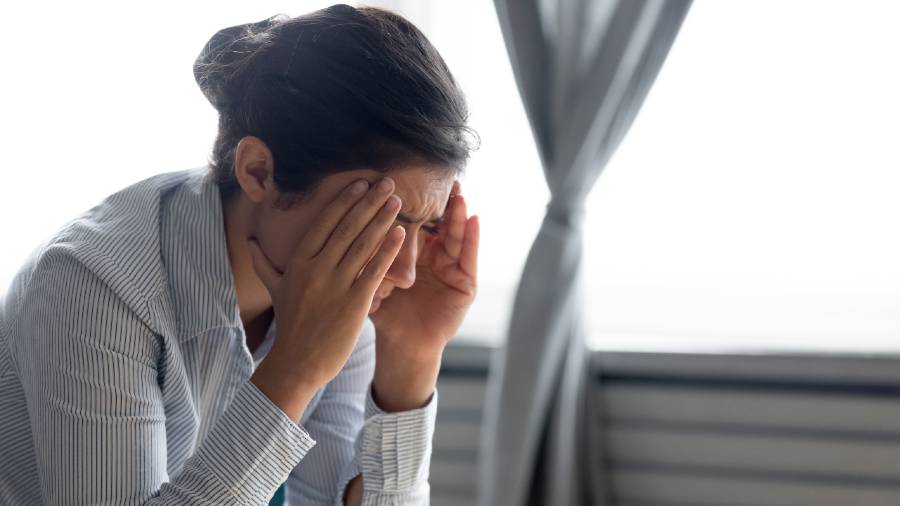
Compassionate Me : Feeling unsettled? Anxious? Overwhelmed? Here are some tips to help you through the summer of 2021
The emotions are likely to stem from the general uncertainty created by pandemic life.: Shutterstock
Tara Parker-Pope | TT | 23.06.21: I asked thousands of New York Times readers to share how they are feeling right now. The most common answers revealed the mixed feelings of the past 14 months: unsettled, anxious, overwhelmed, frazzled, tired, hopeful, optimistic, stressful, exhausted, excited. Some readers said just one word was not enough to describe how they’re feeling. “Bored, anxious, hopeful — all at once. Is there a word for that?” asked one reader.
Ours was not a scientific survey — the respondents all had signed up for the 10-day Fresh Start Challenge, which delivered daily texts with tips for healthy living. But the answers are consistent with national survey data that shows many people are still struggling with the emotional toll of pandemic life.
Dr Judson Brewer, director of research and innovation at Brown University’s Mindfulness Center and an associate professor of psychiatry at the medical school, said many patients are describing themselves as feeling overwhelmed and frazzled. The emotions are likely to stem from the general uncertainty created by pandemic life.
“Information is food for our brain,” said Dr Brewer, author of the new book Unwinding Anxiety: New Science Shows How to Break the Cycles of Worry and Fear to Heal Your Mind. “But when there is continuous uncertainty that we can’t resolve, that leaves people feeling anxious.”
The good news is that times of uncertainty are also opportunities for personal growth and building resilience. Here are some strategies to help you cope with an anxious, uncertain and hopeful summer.
Build distress tolerance
Worrying about what you don’t know will just make anxiety and stress worse. But accepting that some answers aren’t available right now can help you build an emotional muscle called “distress tolerance.” People with low distress tolerance often turn to unhealthy ways of coping, like substance use or spending excessive amounts of mindless time watching television or gaming.
Telling yourself that you accept the current state of uncertainty can help, Dr Brewer said. Try telling yourself, “I’ll change the things I can, and accept the things I can’t.” Identifying and naming your feelings can calm the part of your brain that is feeling stressed. A multi-sensory exercise like five-finger breathing — in which you trace the outline of your hand with a finger while focusing on your breathing — can help stop negative thoughts from taking over.
Identify best pandemic habits
Katy Milkman, a professor at the Wharton School and author of the new book How to Change: The Science of Getting From Where You Are to Where You Want to Be, advises people to look back on the past 14 months and identify the changes you want to keep.
“One of the things I find really interesting about the pandemic is that it forced us to experiment in ways that we wouldn’t usually,” she said.
In her own life, Dr Milkman realised she had been frazzled by the effort to orchestrate her energetic five-year-old’s social calendar. “We were trying to do play dates regularly, and it was truly miserable,” said Dr Milkman. “It was such a relief to realise, ‘Maybe we don’t need so many play dates. Maybe it’s OK to go on hikes together as a family.’”
Strengthen connections
Numerous studies have shown that stronger social connections help us cope with anxiety and build resilience. A number of readers during the Fresh Start Challenge said they were anxious about returning to old social routines. “What is normal now?” texted one reader. “Looking forward to being with people again, but feel like I have lost my ability for casual conversations.”
During the Fresh Start Challenge, we gave readers a list of 36 questions to help them get social conversations started. Although the questions in Dr Aron’s study became known as the 36 questions that lead to love, he points out that the goal of the questions is not to spur romance. Ask yourself, “What do I need right now?”
Lately, I’ve heard from a lot of readers who are berating themselves for gaining weight or exercising less during the lockdowns. It’s important to remember, almost everyone struggled with balancing the restrictions of pandemic life. Shaming yourself is counterproductive. A large body of research shows that when we give ourselves a break and accept our imperfections — a concept called self-compassion — we’re more likely to take care of ourselves and live healthier lives.
“One of the major things self-compassion gives you is the ability to not be so overwhelmed by the difficult emotions,” said Kristin Neff, associate professor, University of Texas, Austin, who has pioneered much of the research on self-compassion. “Give yourself a little kindness.”
NYTNS

0 Response to " Compassionate Me : Feeling unsettled? Anxious? Overwhelmed? Here are some tips to help you through the summer of 2021"
Post a Comment
Disclaimer Note:
The views expressed in the articles published here are solely those of the author and do not necessarily reflect the official policy, position, or perspective of Kalimpong News or KalimNews. Kalimpong News and KalimNews disclaim all liability for the published or posted articles, news, and information and assume no responsibility for the accuracy or validity of the content.
Kalimpong News is a non-profit online news platform managed by KalimNews and operated under the Kalimpong Press Club.
Comment Policy:
We encourage respectful and constructive discussions. Please ensure decency while commenting and register with your email ID to participate.
Note: only a member of this blog may post a comment.